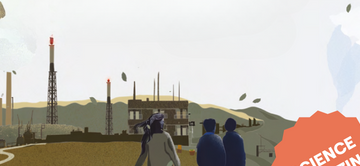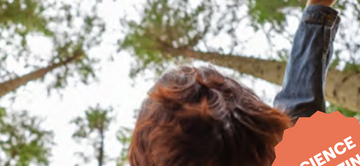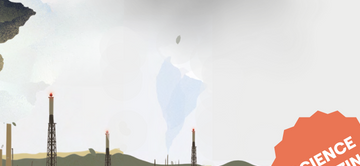This article was published in TSE science magazine, TSE Mag. It is part of the Spring 2024 issue, dedicated to “Climate Revolution”. Discover the full PDF here and email us for a printed copy or your feedback on the mag, there.
If human pollution is choking our planet, how can we call this progress? In a new book project, IAST sociologist Jordanna Matlon claims the historical experiences of Black populations – from colonial brutality to the precariousness of 21st-century jobs – offer valuable perspectives on the environmental and human costs of modern civilization.
WHAT CONNECTS SLAVERY WITH CLIMATE COLLAPSE?
The ecological devastation of the Industrial Revolution coincided with the destruction of cultures and communities of enslaved and colonized populations, trampled by a Eurocentric, man-conquers-nature vision of progress. As part of the relentless pursuit of growth and commodities, imperialism and the transatlantic slave trade fueled and foretold today’s climate tragedy. Enslaved peoples have already endured the end of the world. This is why it is important to situate historical connections between developed and developing countries, between colonizers and colonized.
As Jeremy Williams writes in a 2022 BBC article, “Why climate change is inherently racist”, climate change and racism are strongly intertwined with “a stark divide between who has caused climate change and who is suffering from its effects”.
HOW CAN HISTORY LIGHT A WAY FORWARD?
The survival strategies I explore – in slave plantations, fugitive maroon communities, modern cities, and artistic imagination – reveal ecological harmonies and kinship systems that were not predicated on extraction, profit, or hierarchy. Adapting to scarce resources, forced migration, and the collapse of formal economies, Black stories show another way is possible.
FURTHER READING
- Guivarch Céline, Nicolas Taconet, and Aurélie Méjean (2021) - "Linking Climate and Inequality." International Monetary Fund: Finance and Development
- Jeremy Williams (2022) - Why climate change is inherently racist - BBC
- Joan Brunkard, Gonza Namulanda and Raoult Ratard (2013) Disaster Medicine and Public Health Preparedness - Hurricane Katrina Deaths, Louisiana, 2005 – Cambridge Core
Author
- Jordanna Matlon



